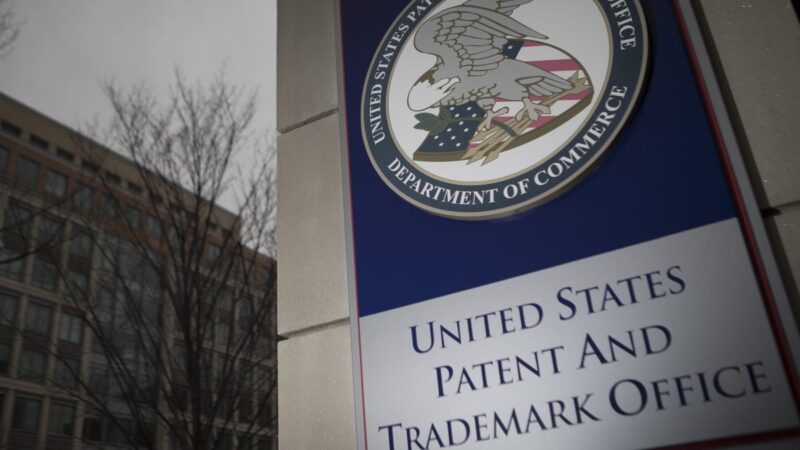Standard Essential Patents and European Economic Security

By Kirti Gupta and Chris Borges
On April 27, 2023, the European Commission published a draft proposal on standard essential patents (SEPs) seeking to address the perceived lack of transparency and predictability in the licensing of SEPs. The commission proposes the creation of a competence center within the European Union Intellectual Property Office (EUIPO), which will oblige SEP owners to register their declared SEPs in a database, check the “essentiality” of declared SEPs with technical and legal teams, and, most significantly, establish an out-of-court procedure to determine fair, reasonable, and nondiscriminatory (FRAND) terms and aggregate royalties for use of a given standard.
The motivation for the proposal is to increase transparency in the licensing process and aid small and medium-sized enterprises (SMEs) that implement SEPs. As there are more SEP implementers than SEP owners in the European Union, it would stand to reason that this would be a net benefit. The proposal is largely backed by the Fair Standards Alliance, a consortium of SEP implementers ranging from phone and tablet device makers to car manufacturers.
Nevertheless, by devaluing European intellectual property rights, the proposal may ultimately undermine European innovation and influence over critical global technology standards. The proposal seeks to set price caps in the form of aggregate royalties, which may be utilized to exert downward pressure on licensing fees for SEPs. As the European Union is a research and development (R&D) powerhouse for the technologies protected by SEPs, such as cellular devices, internet of things devices, and connected automobiles, this may primarily benefit device manufacturers and licensees that are largely based in Asia. For instance, in 2021 Ericsson and Nokia—Europe’s leading telecommunications firms—earned over $2 billion in SEP licensing fees from Asian device manufacturers. A reduction in licensing revenue reduces the incentives for companies to undertake risky R&D and innovate in the critical geopolitical arena of standards development.
To align with the European Union’s innovation agenda to lead in critical technologies, the commission should consider revising the SEP proposal as written. While elements of the proposal may provide SEP implementers with more information, Europe’s innovation agenda is better served by steering clear of any price regulation for licensing of intellectual property (IP).
Standards and Standard Essential Patents
A technology standard is a set of established technical specifications, guidelines, or protocols that are widely accepted within a particular industry or field of technology. These standards define how technology should be designed, manufactured, and operated, ensuring compatibility and interoperability across products from different entities. Technology standards are developed not only to ensure interoperability (e.g., guaranteeing that a USB cable purchased from any manufacturer works with the USB port on your computer), but also as a market-driven mechanism for the industry to cooperatively innovate. For example, 2G and 3G standards were developed to address the rising global demand for cellular services by solving technical problems across the industry.
Technology standards are foundational to many critical technology sectors, therefore, influence over global standards-setting processes may grant nations notable geopolitical advantages. Nations can guide standards development in directions which favor their domestic industries, thereby bestowing them with a technical edge. Further, as technology becomes increasingly ubiquitous in everyday life, standards development carries considerable political considerations. In telecommunications, the same standards that ensure all mobile devices are interoperable dictate requirements around data retention, encryption, and location tracking, among other privacy considerations. Accordingly, influence over telecommunications standards may allow nations to advance their own human rights and security agendas.
An SEP is a patent on a technology used within an industry standard. The patent is considered “essential” because any product that conforms to that standard must use the patented technology. For example, if a company holds a patent over a component necessary in USB ports, no computer manufacturer could create a USB port without acquiring a license from the SEP owner. To ensure that SEPs are available for licensing, owners of SEPs routinely commit to the standard development organizations (SDOs) to offer licenses on FRAND terms.
SEPs are vital to the standards-setting process as they incentivize companies to invest in developing the foundational technologies that advance critical industries, and to share those technologies with everyone. The R&D required to create new technologies can be expensive, so companies need assurances that they will recoup their investments should they successfully innovate. Without the ability to license their SEPs, made possible by relying on a legal system that protects IP rights, companies are less likely to invest in developing new technologies used in standards, causing their home nations to lose influence over the global standards-setting process.
Don’t Fix What Isn’t Broken
There is insufficient empirical evidence that the existing SEP licensing system is not working. While the commission’s impact assessment includes anecdotal evidence from SEP implementers, a 2023 study authorized by the commission concludes that “existing empirical evidence on the causal effects of current SEP licensing conditions is largely inconclusive.”
Indeed, there is evidence suggesting that the licensing system is functioning properly. That same 2023 study authorized by the commission found that SEP litigation is decreasing over time. Disputes over FRAND terms peaked in 2014, and 2021, the most recent year with data, had the fewest number of FRAND disputes. Notably, the study also found no evidence that companies were “opting out” of the system and avoiding utilizing technology protected by an SEP. Researchers from Stanford and UC Berkeley have found widespread availability of licensing agreements and comparatively low royalties in SEP-reliant industries, while a separate 2023 paper found that SMEs, the most vulnerable entities in the ecosystem that the commission intends to protect, are rarely the subject of litigation regarding SEPs.
Currently, SEPs are declared to the SDOs which bring together experts, industry stakeholders, and government representatives to create and maintain standards in a consensus-based process. By including stakeholders in the SEP designation process, SDOs utilize a market-driven approach to determine which patented technologies are required for the entire industry’s success.
The commission’s proposal, in contrast, shifts significant authority to the EUIPO, requiring the office to make critical decisions on the standards technology instead of the SDOs most familiar with the technology. This is a significant shift and massive undertaking for the EUIPO, requiring a technical analysis of thousands of patents and standards documents. António Campinos, former EUIPO head and current president of the European Patent Office, recently expressed concerns with this responsibility going to an agency “with no experience in the field of patents.”
The Threat to European Standards Leadership
Should the commission’s proposal be made law, it may undermine the incentives for European firms that lead in global technology standards to invest in continued standards innovation, eventually eroding Europe’s influence over international technology standards. The commission’s impact assessment acknowledges this risk by recognizing that the “different redistribution of economic surplus may . . . affect innovation and standard implementation incentives in ways that are difficult to predict.”
By effectively establishing a price regulation, the proposal is likely to reduce the royalties received by SEP owners. This revenue, much of which comes from companies headquartered in Asia, is essential for SEP owners to recoup their investments in risky R&D, thereby generating available funding for future investment in the R&D and capital expenditures needed to innovate.
Properly incentivizing R&D in critical technologies is crucial for Europe because, in today’s global economy, top European companies are competing against foreign companies in a global market. China, for example, recognizes the importance of R&D and leadership in standards, and provides various incentives to its domestic telecommunications industry, including subsidies, which European companies must compete against. European policies should not only promote competition within Europe but ensure that European companies remain competitive globally. Reducing SEP licensing revenue ultimately reduces incentives and funding for R&D, thereby undermining the global competitiveness of European companies.
Indeed, the importance of licensing fees for IP in critical technologies is not lost on China. In July 2023 China’s antitrust authority, the State Administration for Market Regulation (SAMR), released a proposal to counter “unfairly high” SEP prices. This proposal by SAMR comes as mounting evidence suggests that China may employ its courts and antitrust laws to lower the royalties its telecommunications companies pay Western SEP owners, which ultimately prompted the commission to file a case against China at the World Trade Organization. Nevertheless, the commission’s proposal will likely benefit China at the expense of European SEP owners by reducing licensing fees.
The potential costs of the proposed regulation are clear in the telecommunications industry, a standards-reliant industry critical for both national security and economic prosperity. A strong telecommunications infrastructure has long been associated with substantial economic benefits. A 2016 study by the commission estimates that rollout of 5G capabilities throughout Europe could generate over €113 billion per year in economic growth while creating millions of jobs. This dynamic understandably compels nations to be protective of their telecommunications infrastructure. For example, Thierry Breton, EU commissioner for internal market, recently called on more member states to remove “high-risk” suppliers such as Huawei and ZTE from their 5G telecommunications networks.
However, while the European Union desires a strong domestic telecommunications industry, it is undermining its ability to innovate and create these essential technologies. Should the regulation be passed into law, major European telecommunications providers like Nokia and Ericsson—which combined spend approximately $10 billion annually on R&D—will be less equipped to invest in capital and R&D for future tech like 6G. This will weaken the European telecommunications industry, which will have downstream economic repercussions for the entire European economy. Moreover, it will disincentivize innovation into standards-setting technologies, weakening European influence over the international standards setting process. By empowering telecommunications companies in China and other nations with differing values, the European Union would be ceding ground in a vital domain of geopolitical competition.
Kirti Gupta is senior adviser (non-resident) with the Renewing American Innovation Project at the Center for Strategic and International Studies (CSIS) in Washington, D.C. Chris Borges is a program manager and associate fellow with the Geoeconomics Center at CSIS.


Assessing the Patent and Trademark Office’s Inventorship Guidance for AI-Assisted Inventions
